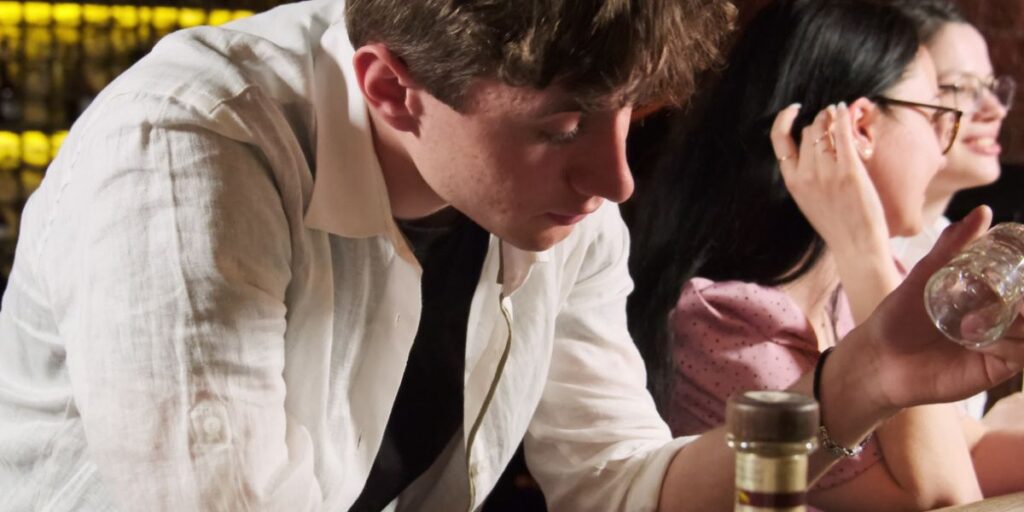What Is Binge Drinking?

When people are asked about binge drinking, they may think it means consuming a large amount of alcohol rapidly. This could involve taking multiple shots or drinking a significant amount in a short period of time. Binge drinking includes drinking four martinis at dinner or seven to eight beers while watching sports.
Most people aren’t acutely aware of the dangers of binge drinking and the troubles it can lead to, both now and in the future.
It’s believed by specialists that binge drinking causes significant expenses for the United States in areas like emergency services, healthcare, lost workdays, and legal troubles, costing the country around $191 billion annually.
The physical and mental health problems caused by binge drinkers have a significant impact on themselves, their families, and society, but it’s hard to measure just how much.
What Is Binge Drinking?
The National Institute on Alcohol Abuse and Alcoholism (NIAAA) and the 2021 National Survey on Drug Use and Health (NSDUH) defines binge drinking as a pattern of drinking a lot in a short period of time that brings your blood alcohol concentration (BAC) to 0.08% or higher. A BAC level of 0.08% is equivalent to 0.08 grams of alcohol. For many adults, this is about five or more drinks for men in two hours and four or more for women.
The Centers for Disease Control and Prevention (CDC) states that binge drinking is the most common and expensive type of excessive drinking. It’s also the leading cause of injuries and deaths related to alcohol.
Is Binge Drinking Alcoholism?
Binge drinking is different from alcoholism, but it’s still a severe and risky behavior that can lead to a long-term condition known as alcohol use disorder, often referred to as alcoholism. The critical difference between binge drinkers and alcoholics is their physical dependence on alcohol and their behavior toward it.
Binge drinkers might have five or more drinks in one evening and then not drink again for weeks without experiencing major immediate problems. They have control over when they start drinking, but once they start, it becomes difficult for them to stop or control how much they drink.
Binge drinking is a problematic way of using substances for enjoyment, and those who do it often are at a higher risk of developing an addiction to alcohol.
People with alcohol use disorder have a strong need for alcohol and can feel very ill if they suddenly stop drinking. This includes severe withdrawal symptoms and possibly life-threatening seizures. Alcoholics might not always drink excessively at one time, but they need to drink regularly to avoid feeling sick.

What Is a Binge Drinker?
A binge drinker is a person who drinks enough in one session to raise their blood alcohol level (BAC) to 0.08% or higher. Binge drinkers can be of any age or gender and come from various racial and geographical backgrounds. In the United States, adults consume 17 billion binge drinks annually. This averages out to about 467 drinks per year for each adult who engages in binge drinking.
Here are some additional facts about binge drinking and those who partake in it:
- One in every six adults in the United States binge drinks, with 25% reporting they do it weekly
- 90% of heavy drinkers also engage in binge drinking
- One in four binge drinkers consume at least eight drinks each time they binge
- 24% of U.S. residents say they often binge drink
- 90% of people under 21 who drink, including high school students, engage in binge drinking
- People aged 18 to 34 are the most likely to binge drink
- Binge drinking is directly responsible for about 47,000 deaths in the United States each year
Effects of Binge Drinking
Binge drinking is more dangerous than many people realize. It’s not only harmful to your body, but it also affects your behavior and decision-making. It increases the likelihood of engaging in risky activities, including unsafe sexual behavior and other dangerous actions. This behavior endangers not only the person who drinks excessively but also those around them.
The National Institutes of Health (NIH) outlined the risks and effects of binge drinking, including:
- Accidental injuries and death, such as falls, burns, car accidents, drowning, and a high risk of alcohol poisoning
- A higher chance of becoming a victim of violence and sexual assault
- Drug use
- Memory blackouts
- Vomiting
- Hangovers
- Getting sexually transmitted diseases
- Unplanned pregnancy
- Thoughts and behaviors related to suicide
- Legal problems
Binge drinking can cause short-term health problems that disappear once the alcohol is out of your system. However, if you continue binge drinking, it can result in serious long-term health issues. These issues can affect you physically and mentally, similar to other forms of heavy drinking.

Short and Long-Term Consequences of Binge Drinking
As time goes by, individuals who engage in binge drinking may start to experience long-term health issues, such as developing a tolerance to alcohol and potentially facing an alcohol use disorder.
Binge drinking long-term effects include:
- A weakened immune system
- Memory impairment
- Mood swings
- Cognitive decline
- Risk of sexually transmitted diseases
- Sexual dysfunction
- Fertility issues
- Liver failure
- Heart issues
- Brain damage
- Kidney damage
- Pancreatitis
- Increased blood pressure
- Risk of heart attack and stroke
- Seizures
- Post-acute withdrawal syndrome
Binge drinking, similar to other substance use disorders, is influenced by a combination of genetic, mental, physical, behavioral, and environmental factors. These factors contribute to a growing pattern of dependence and addiction. Because binge drinking is not only a physical problem, overcoming it requires evidence-based treatment that addresses all these aspects.
The environments in which people socialize significantly affect binge drinking. Staying in a treatment center provides a fresh start. It removes the temptations that lead you to drink. This helps you steer clear of triggers that may cause you to relapse.
Evidence-Based Alcohol Abuse Treatment
You don’t have to wait until your drinking is out of control to seek help. If you or someone you care about is concerned about binge drinking, there is support available and a new way of living.
Northridge Addiction Treatment Center focuses on treating the entire individual with an evidence-based approach. This method addresses all aspects of alcohol abuse and addiction. During your stay at our peaceful and private facility, you’ll develop healthy habits and improve your communication skills. This will change how you manage challenging situations that could affect your recovery.
Reach out to our treatment specialists today. We’re here to assist you in starting a life focused on recovery.
Find Meaningful Recovery
Our caring and compassionate specialists are eager to help you comfortably navigate this journey to recovery. Our individualized treatment plan, programs, and therapies may be a perfect match for you or your loved one. Let us assist you in living the happy life you deserve. It starts with a phone call.




